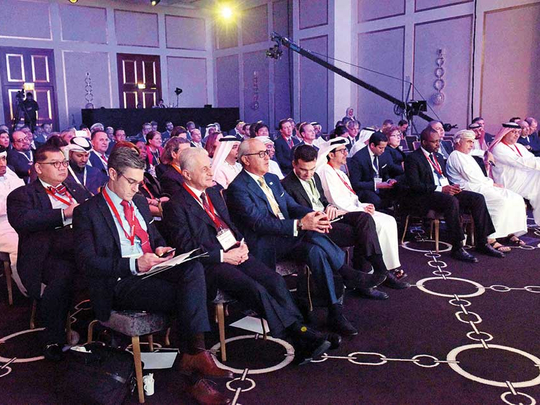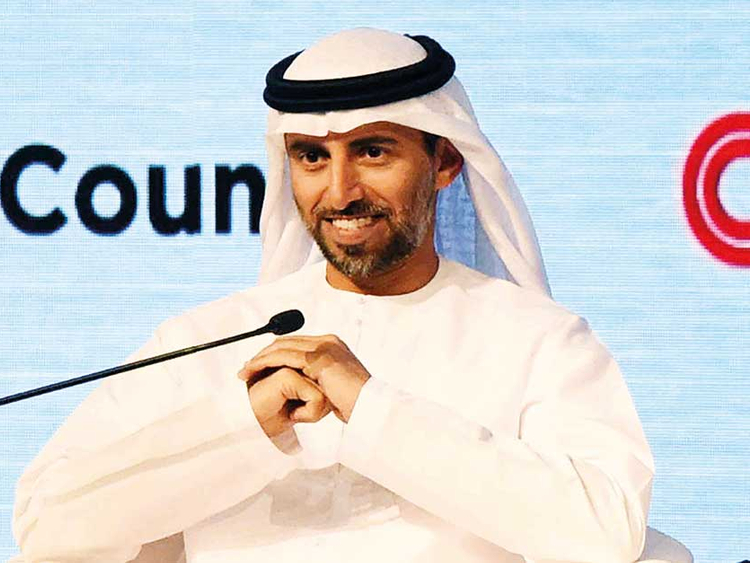
Abu Dhabi
Iraq oil minister Jabar Al Luaibi said the extension of Opec’s production cut agreement until the end of 2018 had a positive impact on oil markets but still more needs to be achieved.
“The market is stabilising but not 100 per cent stable. There is still a gap between supply and demand and global oil inventories are still high,” Al Luaibi while speaking to reporters on the sidelines of Atlantic Council Global Energy Forum in Abu Dhabi on Saturday, while adding that the deal should be continued until the end of 2018 for a complete rebalance of oil markets.
“We agreed in last December to continue decreasing oil production for another year and that had a good impact on the market stability and also on the price improvement. The deal should be continued.”
Opec (Organisation of the Petroleum Exporting Countries) in cooperation with non-Opec members are cutting production by about 1.8 million barrels per day to help lower global oil inventories and support oil prices. The deal, which came into effect at the beginning of last year, has been extended until the end of 2018.
Iraq is the second-largest producer of oil within Opec, with a current production of 4.3 million barrels per day.
Speaking on oil prices, the minister said the current oil rally is sustainable but there could be a fluctuation of 10 per cent due to rise in shale oil production in the US.
Oil prices are currently trading above $60 per barrel with global benchmark Brent at $69.87 per barrel and West Texas Intermediate at $64.30 per barrel.
Oil ministers from Gulf countries also expressed optimism about oil prices trading higher in the coming days due to improvement in market fundamentals.
UAE energy minister Suhail Al Mazroui said on Saturday that oil price is not expected to go back to $50 per barrel due to production cuts in place.
“Opec and non-Opec are doing great cuts and combined with demand increase, oil price should not get back to $50 per barrel mark,” he said, adding that there won’t be any change in the output cut deal despite the current increase in oil prices to about $70 per barrel.
“The market fundamentals have not given us a signal that we need to do something to change it. There is still more than 100 million barrels of oil that needs to be removed to get to five years average of oil inventories.”
“The market is correcting itself and we should not panic and do something when the oil price reaches $69 or $70 per barrel.”
Oman oil minister Mohammad Bin Hamad Al Rumhi also expects the oil price to remain healthy in the range of $65 to $70 per barrel in the coming weeks.













